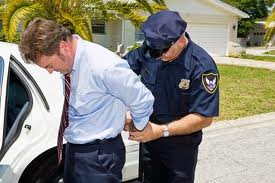
OK. You’ve been arrested and charged with DUI. You know you shouldn’t have been drinking and driving but now you’re facing DUI charges as well as a number of possible other penalties depending on your state’s DUI laws. So how do you work to mitigate the possible negative consequences?
Here are five things everyone should do when facing a DUI charge.
Write down every detail of your arrest including everything you told the arresting officer while it is still fresh in your mind. You’ll want to have a written record of your arrest and be able to reference all of the details of your case.
Make sure you list the following items.
-
What you were doing before you drove?
-
Where did you drive from?
-
How many drinks did you have?
-
How long was it after the last drink until you were arrested?
-
How did the officer behave during the arrest?
-
What did you tell the officer?
-
Where were you pulled over?
-
Did the officer read you your Miranda rights?
-
Did you take a breathalyzer test?
-
Did you take a chemical test?
-
If you took a chemical test how long had it been since your last drink?
-
We’re there any mitigating circumstances?
Write down every thing no matter how small or trivial you think it might be. You never know what bit of information is going to come in handy later on. The more notes you take about your arrest, the easier it will be for your attorney to fight the charges against you and possibly have the charges reduced or plea bargained.
What to Do Next
The second and most obvious action is to start looking for a competent lawyer that specializes in DUI. The old family attorney who has taken care of your family’s real estate transactions isn’t going to cut it. Although you might want to ask an attorney you know for a reference of a DUI specialist.
Chances are the officer who arrested you took your drivers license. Most of the time, the officer is required to then forward a copy of suspension or revocation along with your license to the DMV. The DMV will automatically review the paperwork and issue an immediate suspension or revocation order based on the officer’s report and any tests you’ve taken.
You have the right to request a hearing from the DMV that generally has to be held within ten days. If you can prove during the hearing that there is no basis for a suspension or revocation then the DMV is obligated to restore your license. Your DUI attorney can help you with this process and review the officer’s paperwork for possible mistakes or misstatements. This is another reason to quickly contact a DUI attorney.
Generally if you do wind up with a suspended license you can apply for a restricted license that will allow you to drive to and from work at any DMV field office.
Most states require anyone who has had their license suspended for a DUI to take classes before getting their license back. This is sometimes called DUI School. They will require you to graduate from the school in many cases the timeline for getting your license will depend on how you do in the school itself. You will want to look for a good school. Chances are if you do hire a qualified DUI attorney they will be able to advise you on the best types of schools for your specific case.
Evelyn Franklin is a professional blogger that provides news and information on finding a Florida criminal defense lawyer. She writes for Musca Law, a Florida criminal defense law firm.




